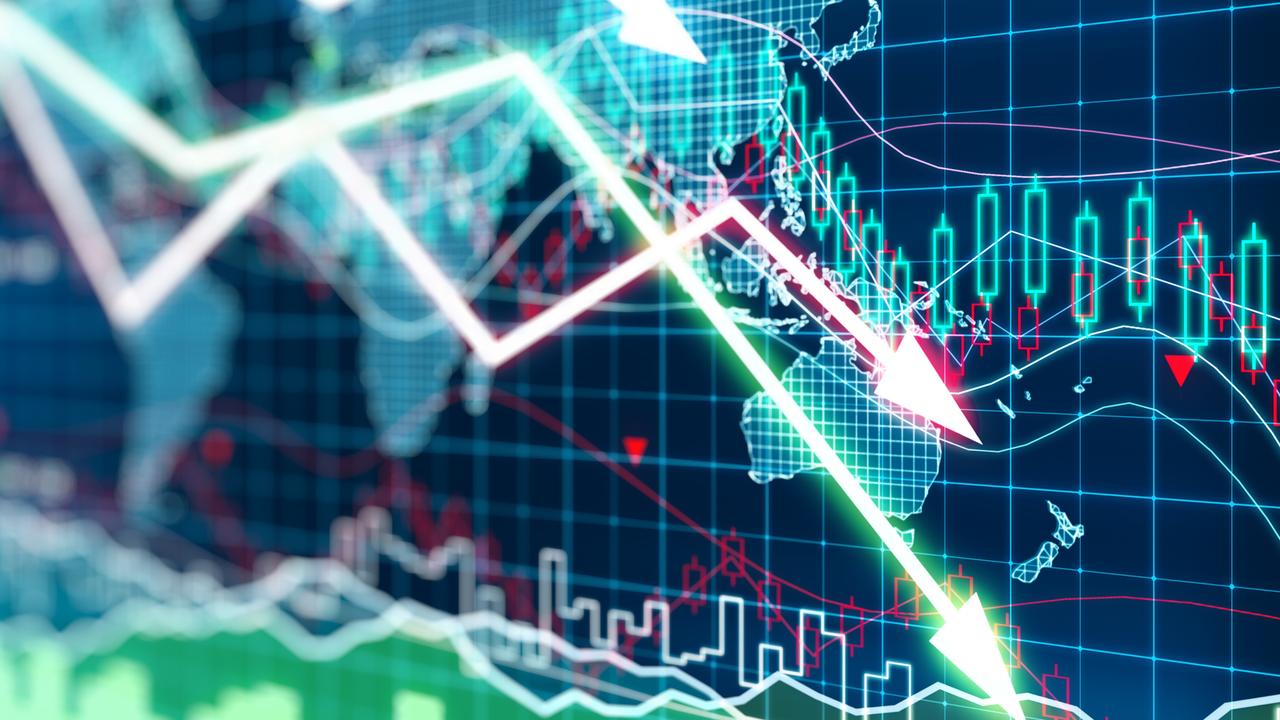‘Hefty price’: Dire warning of looming global economic disaster
It seems the tough times are here to stay, with two major organisations warning of more economic doom and gloom to come.
There’s more gloom on the horizon for the world economy as the invasion of Ukraine wreaks financial havoc across the globe, with the pain here to stay for years ahead.
According to the latest economic outlook from the Organisation for Economic Co-operation and Development (OECD), the world is now “paying a hefty price” for Russia’s war in Ukraine.
“It is a humanitarian disaster, killing thousands and forcing millions from their homes,” the report begins.
“The war has also triggered a cost-of-living crisis, affecting people worldwide. When coupled with China’s zero-Covidpolicy, the war has set the global economy on a course of slower growth and rising inflation – a situation not seen since the 1970s.
“Rising inflation, largely driven by steep increases in the price of energy and food, is causing hardship for low-income people and raising serious food security risks in the world’s poorest economies.”

The report also revealed the OECD had cut its outlook for global growth in 2022 from 4.5 per cent to just 3 per cent, and also doubled its inflation projection to almost 9 per cent for its 38 member nations, which includes Australia.
And there’s little relief in sight, with the OECD predicting growth will slow to 2.8 per cent next year.
“Countries worldwide are being hit by higher commodity prices, which add to inflationary pressures and curb real incomes and spending, further dampening the recovery,” the report states.
“This growth slowdown is a price of war which will be paid through lower incomes and fewer job opportunities.”
‘Economy in danger’
The report comes hot on the heels of a similarly pessimistic prediction from the World Bank this week, with President David Malpass warning that “the world economy is again in danger” with years of higher than average inflation coupled with low growth on the horizon.
“It is facing high inflation and slow growth at the same time,” Mr Malpass explained in the latest edition of the World Bank’s Global Economic Prospects report.
“Even if a global recession is averted, the pain of stagflation could persist for several years – unless major supply increases are set in motion.”
What is stagflation?
“Stagflation” is a term given to an extremely rare economic phenomenon the world hasn’t seen since the 1970s.
In a nutshell, it refers to a situation where the inflation rate is soaring while the economic growth rate slows down and unemployment is high.
It occurred in the 70s when the US faced five quarters of negative GDP growth in the wake of the oil crisis, coupled with the inflation rate doubling in 1973 followed by a 9 per cent unemployment rate in 1975.
It has not been seen since – but now, experts say it has made an unwelcome return.

Recession ‘hard to avoid’
Meanwhile, according to the report, the World Bank also expects global growth to fall from 5.7 per cent last year to just 2.9 per cent this year, where it is set to remain into next year and even 2024 “as the war in Ukraine disrupts activity, investment, and trade in the near term, pent-up demand fades, and fiscal and monetary policy accommodation is withdrawn”.
“The war in Ukraine, lockdowns in China, supply-chain disruptions, and the risk of stagflation are hammering growth. For many countries, recession will be hard to avoid,” Mr Malpass explained.
“Markets look forward, so it is urgent to encourage production and avoid trade restrictions. “Changes in fiscal, monetary, climate and debt policy are needed to counter capital misallocation and inequality.”






